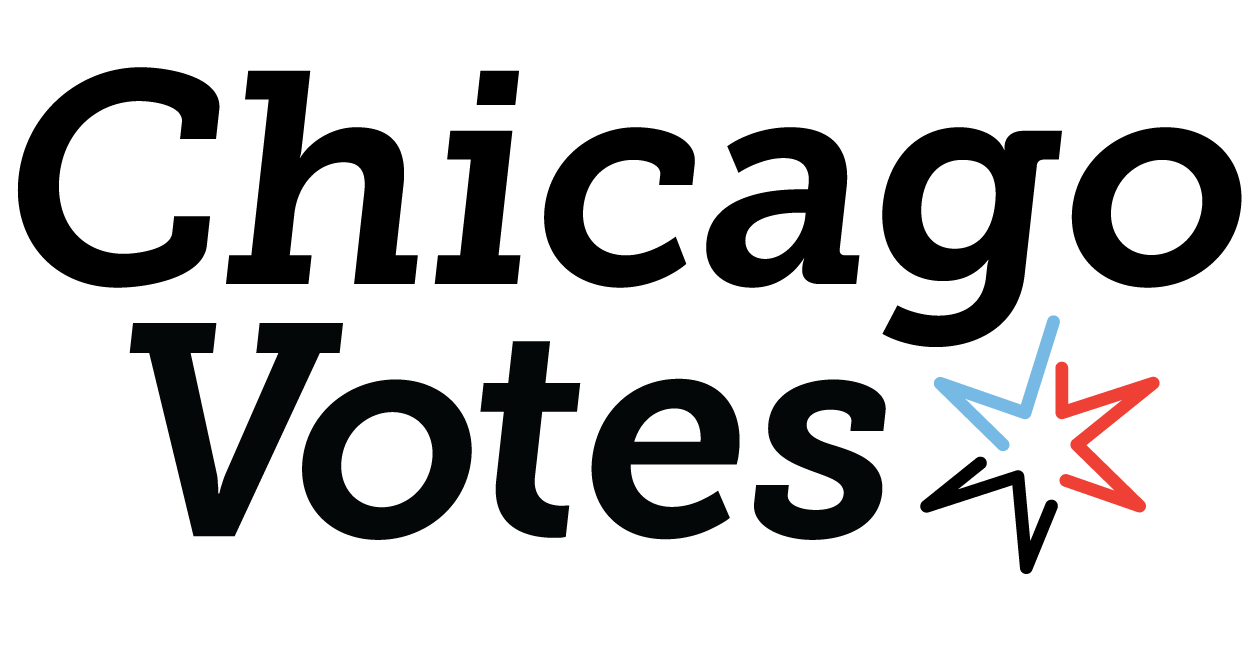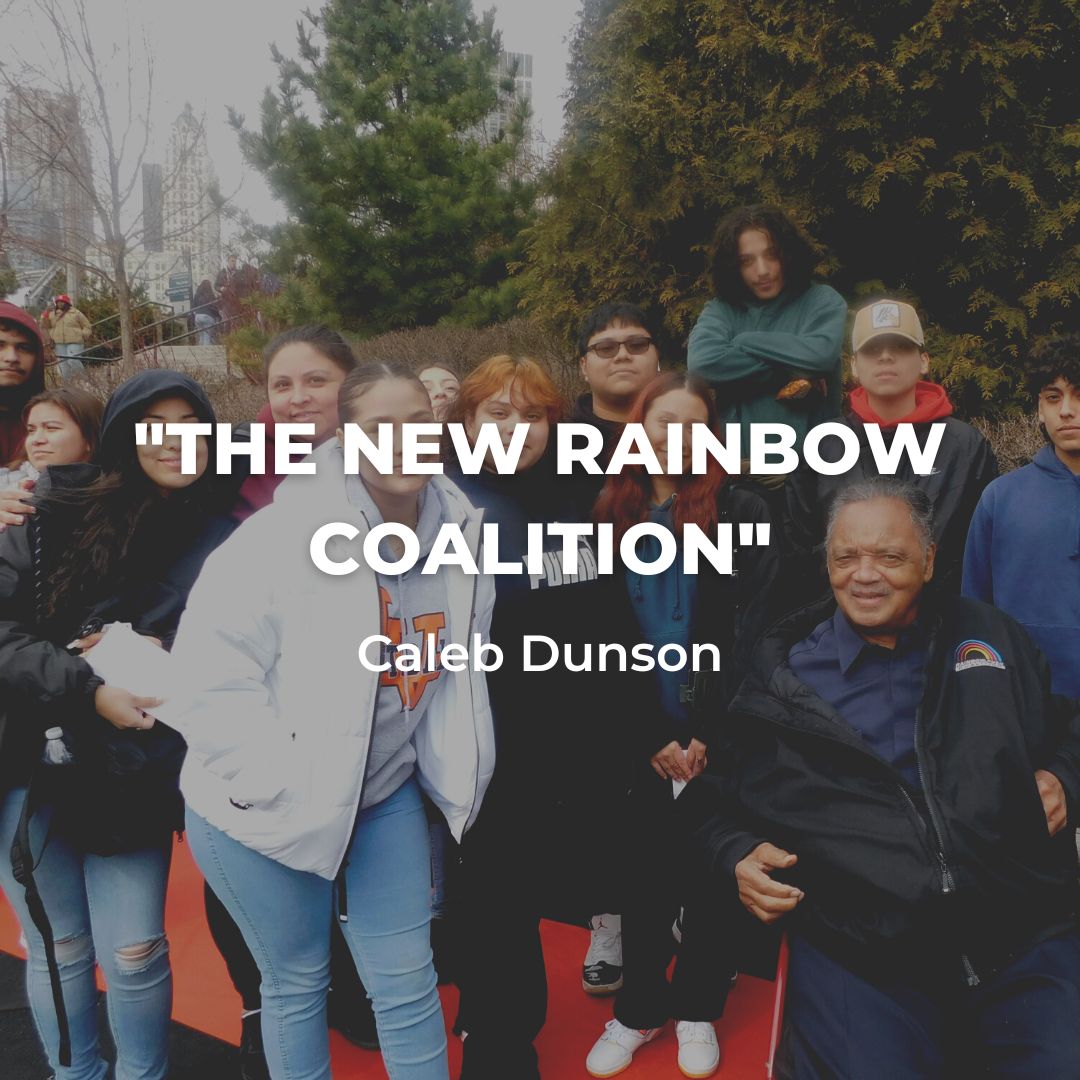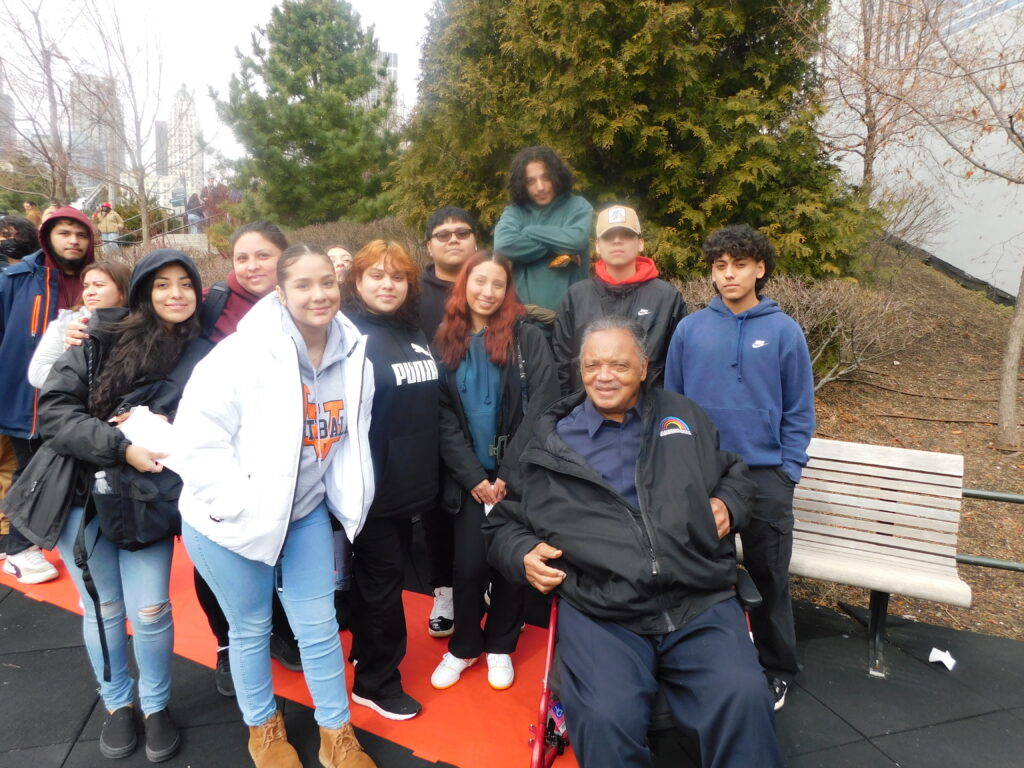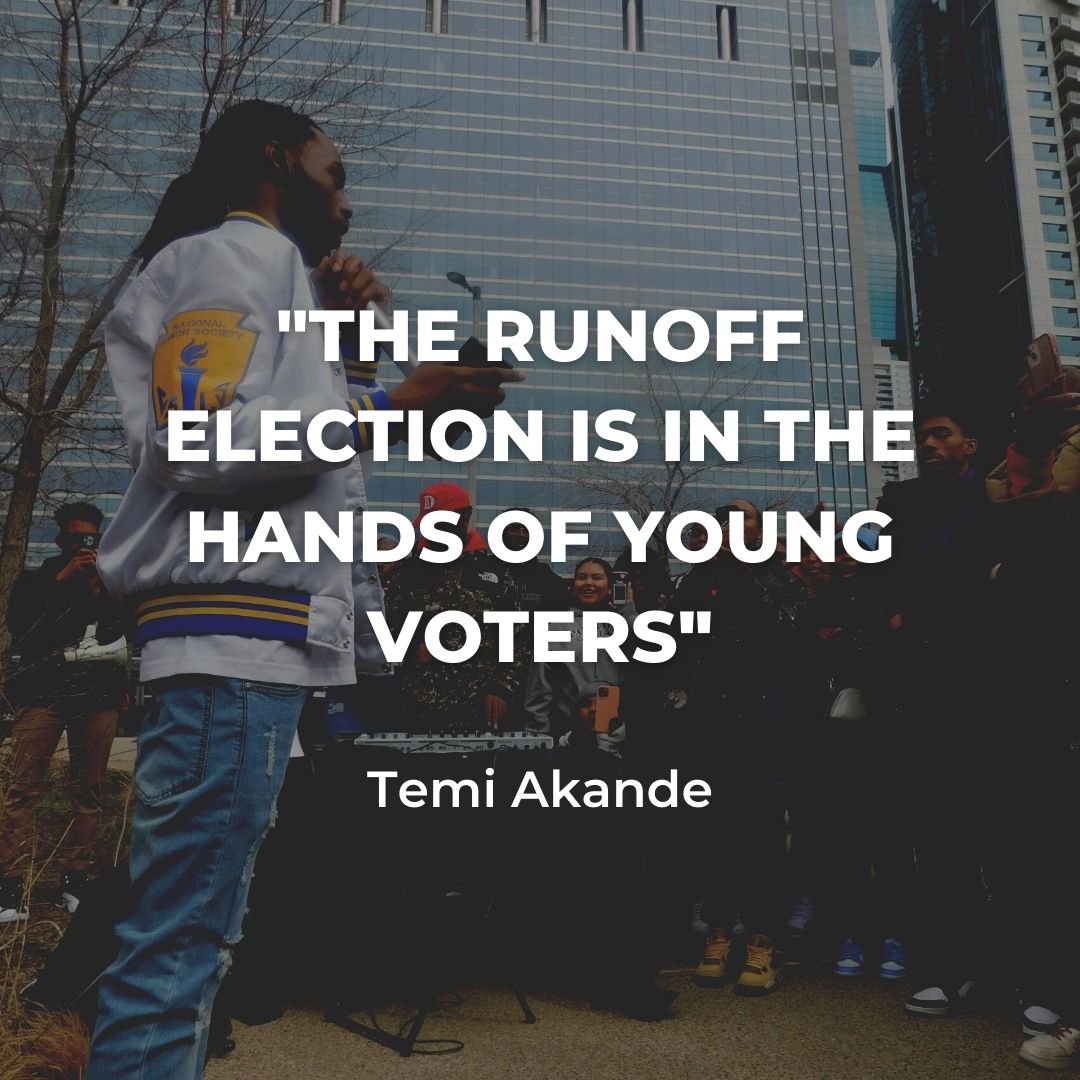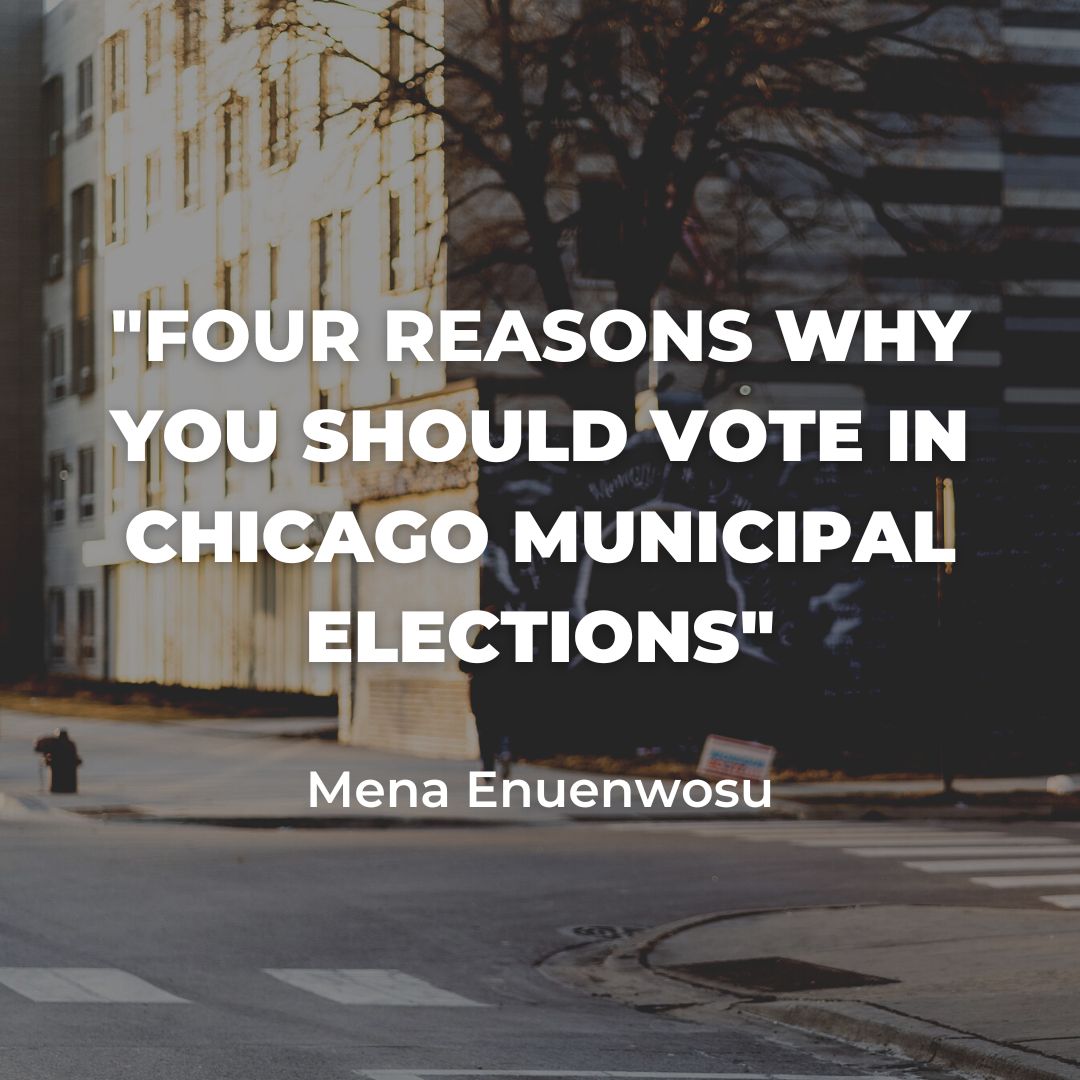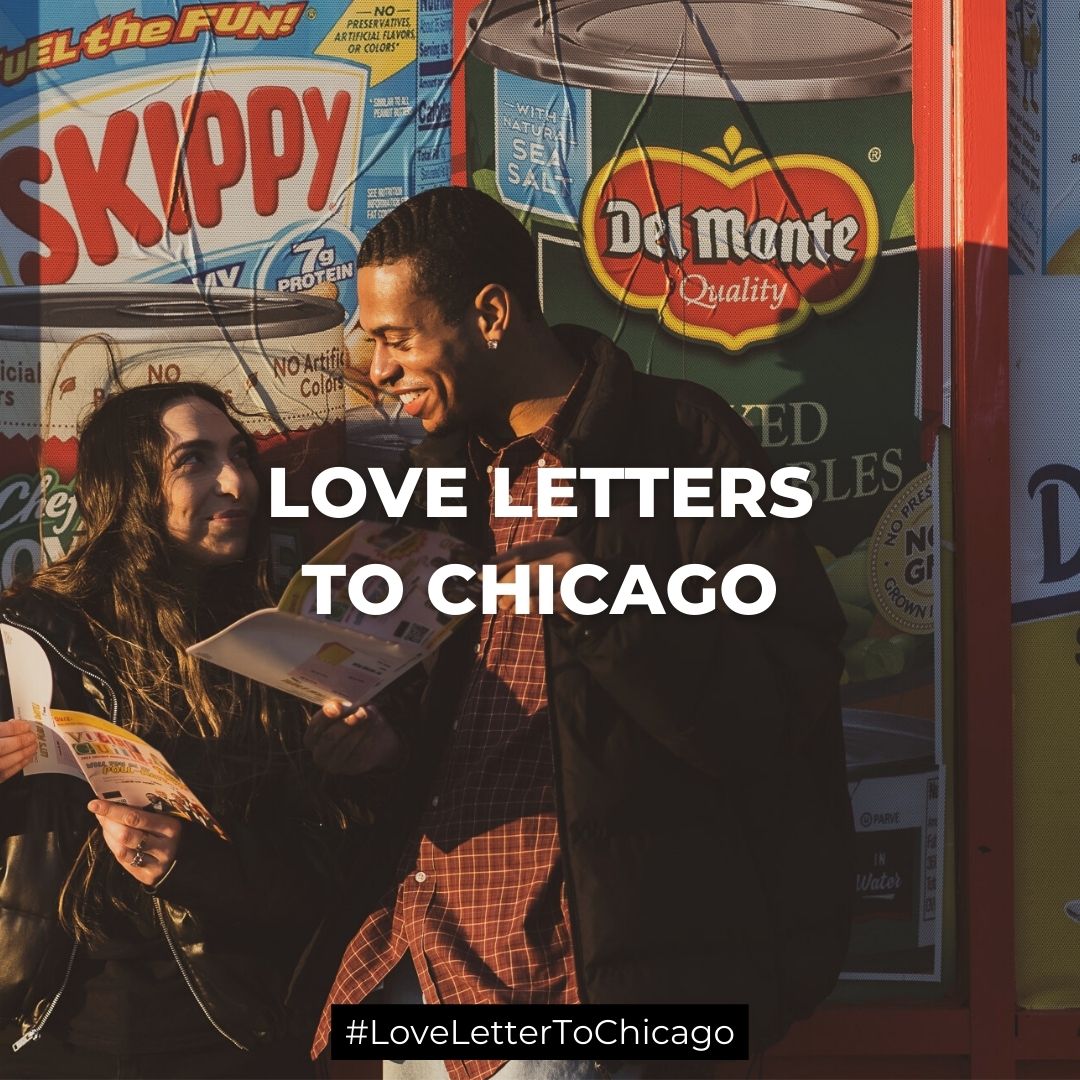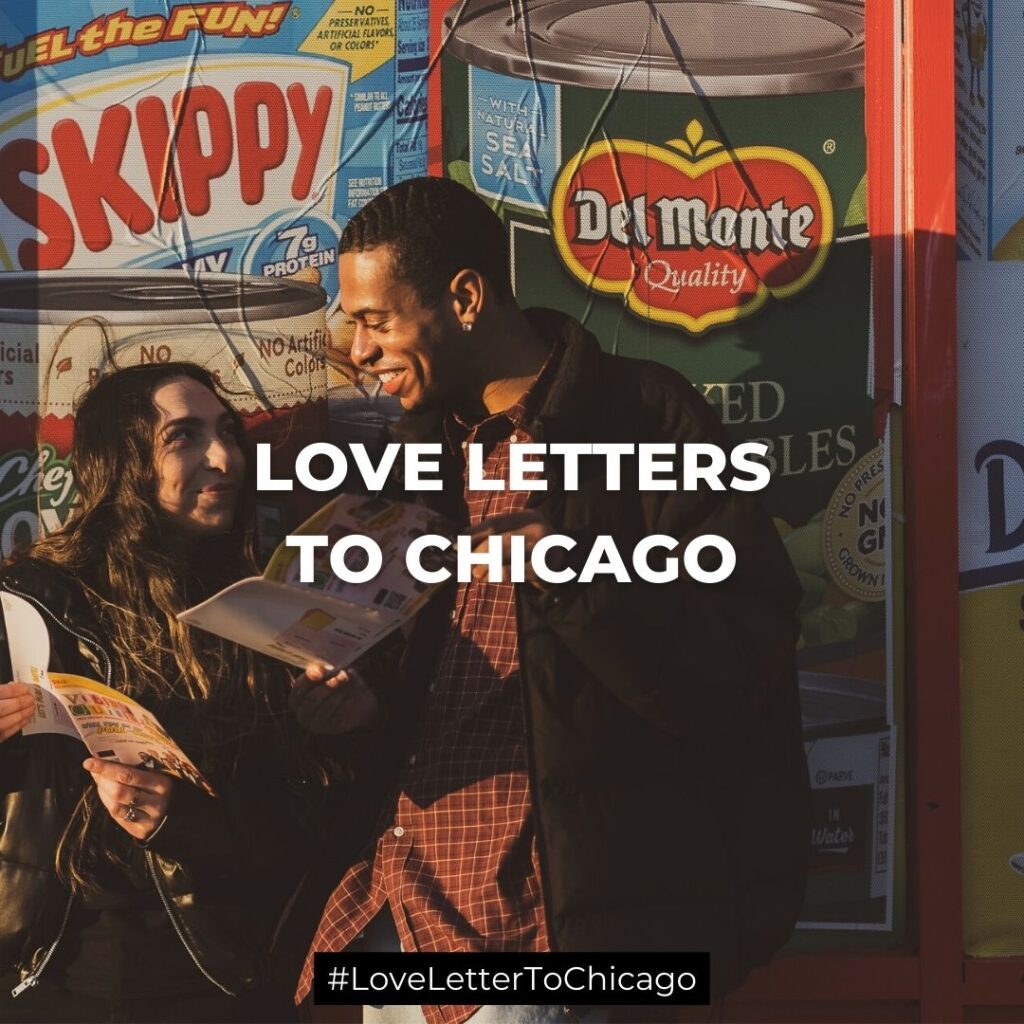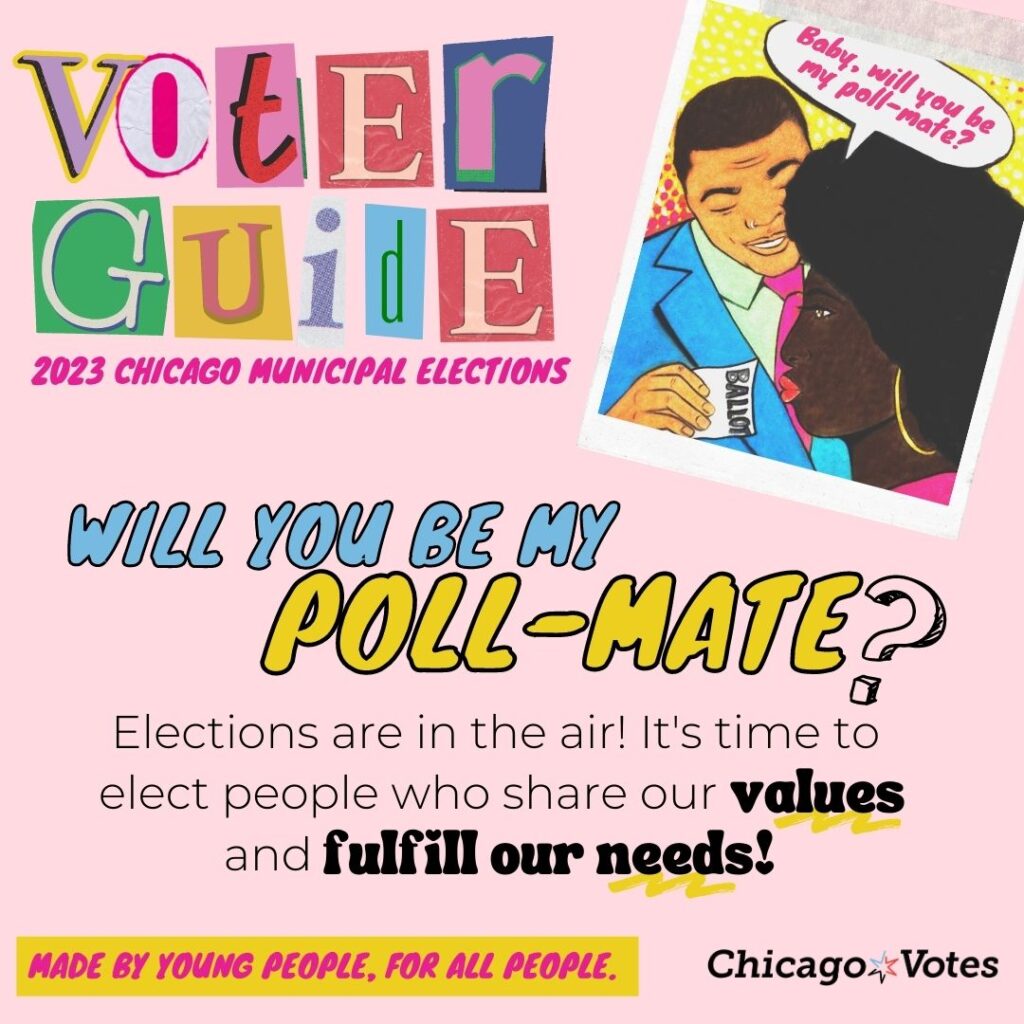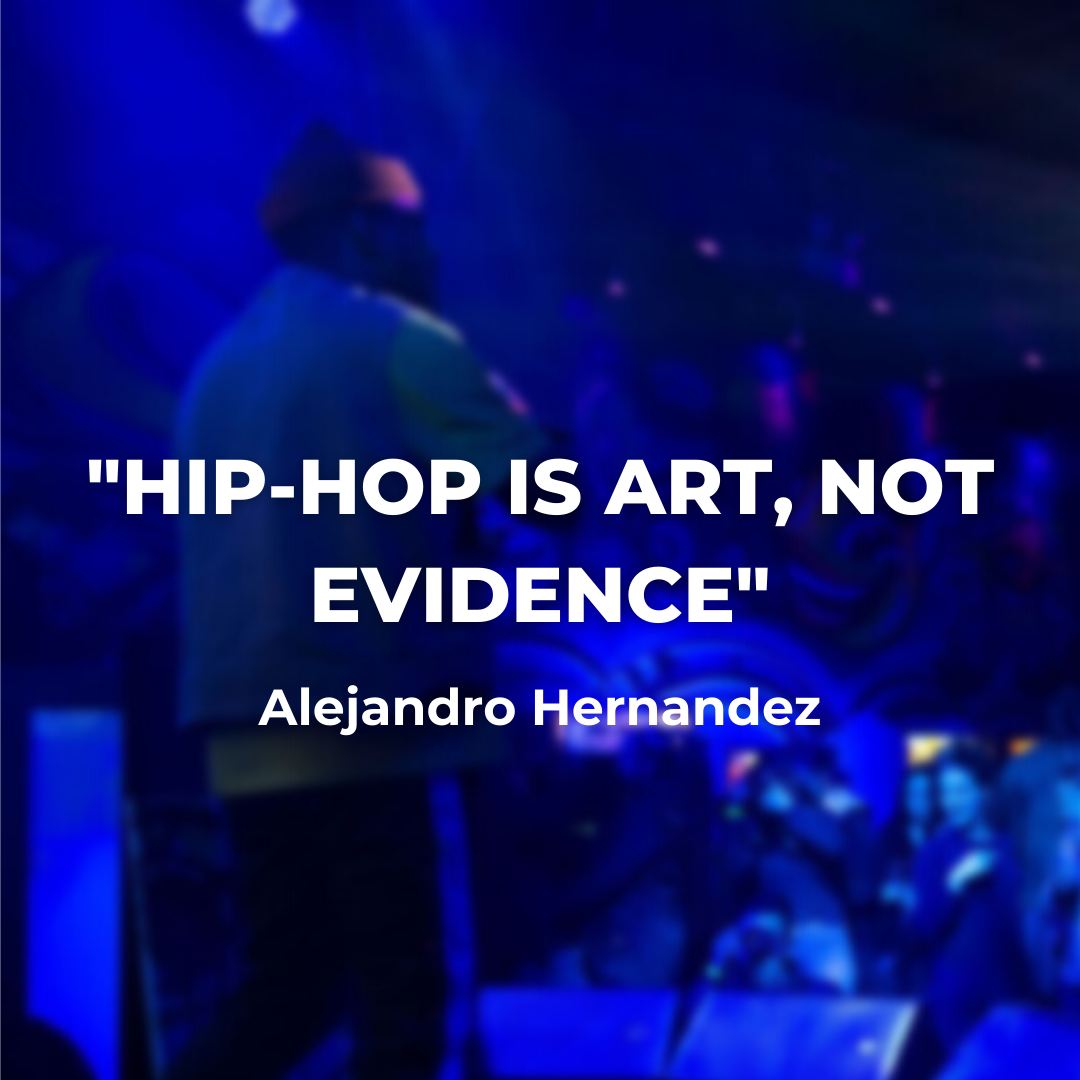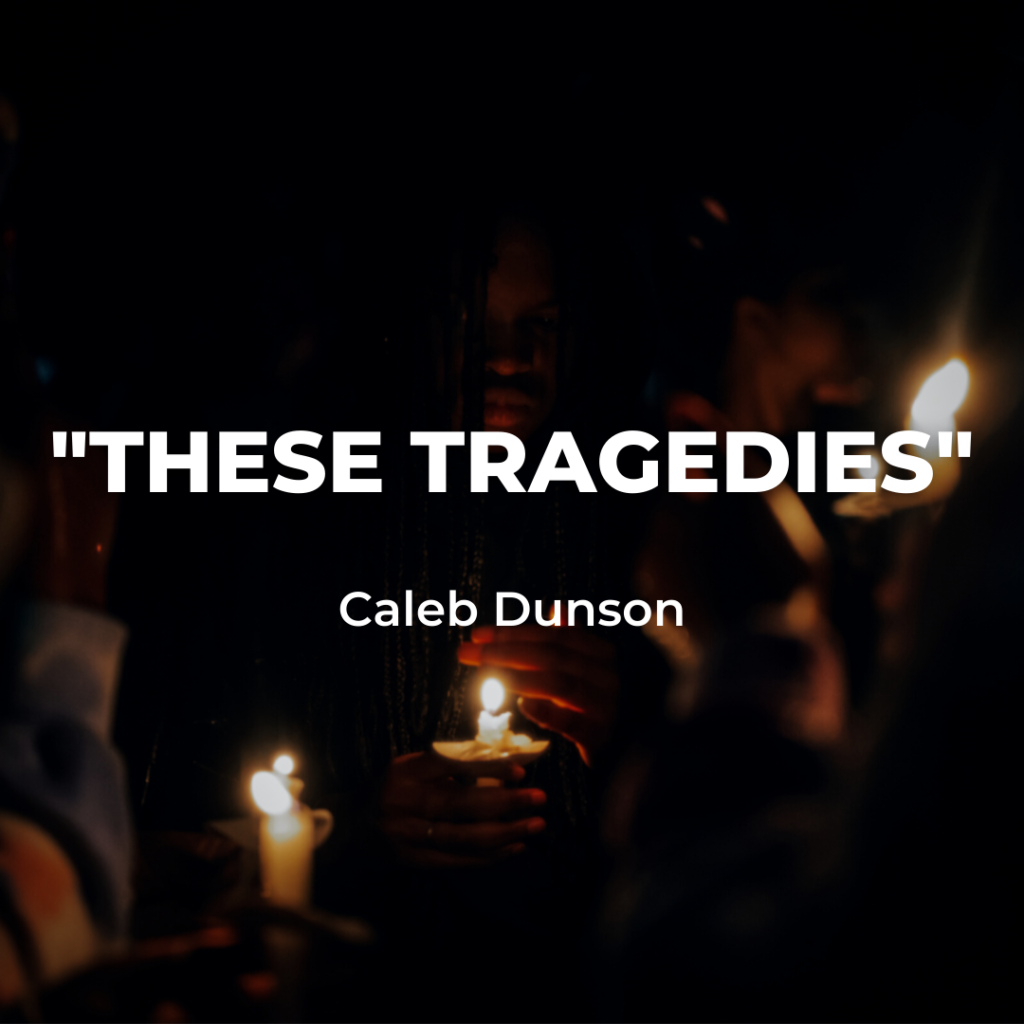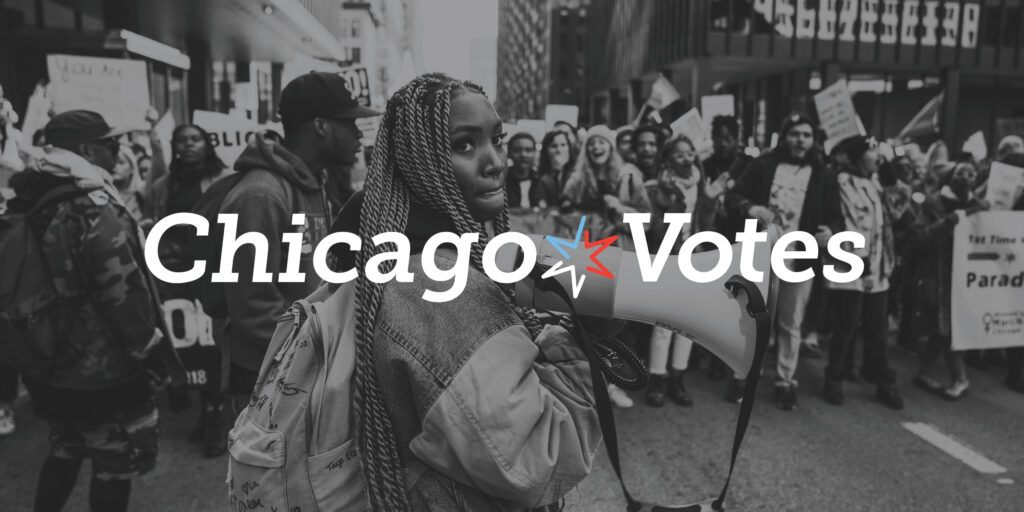
With one election after another throughout the past year, we are relieved to say the next election won’t be until 2024, phew! Until then, we have the opportunity to reflect on our past efforts to get young people to the polls!
Between the February municipal elections and the April runoff, voter turnout from young people ages 18-24 increased by 32%, with ages 25-34 increasing by 24%. That is no small accomplishment. In six weeks’ time, grassroots organizations, campaigns, and nonprofits hit the ground running– door-knocking, phone banking, hosting voter mobilization events, and more.
After conducting a robust get-out-the-vote (GOTV) campaign ahead of the February municipal elections, Chicago Votes continued to turn out voters with an energetic GOTV campaign ahead of the April runoff. We released our March-madness-themed voter guide, which included a poster from Chicago artist Ewrks, a mayoral candidate questionnaire, and other helpful voting information. On top of that, our fellows organized dozens of voter mobilization events, including open gym & mic nights at the community colleges, phone banking, mayoral forums, phone banking, and canvassing. It’s been a lot, but with such a significant increase in young voter turnout, it’s safe to say that it is paying off!
In this month’s Chicago Votes Monthly, we recap the April runoff election, update you on our programming, and tell you all the ways you can tune into the work this spring.
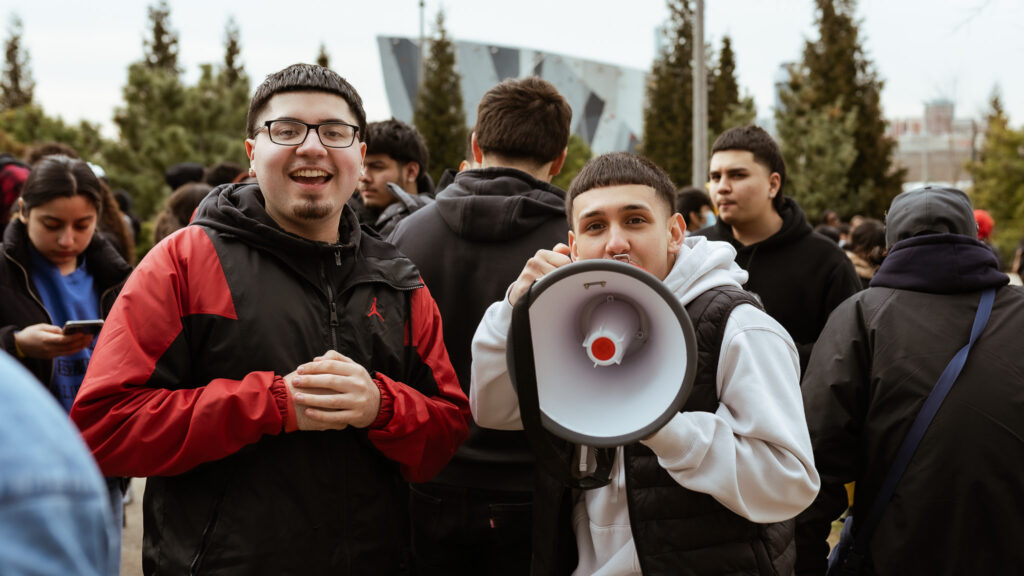
Celebrating Our Spring Fellows!
Shortly after the runoff elections, we wrapped up our ’22-’23 Get Out the Vote, Give A Sh*t, and Digital Organizing fellows. Throughout these programs, they have organized 3 robust get out the vote campaigns, contributed to 3 voter guides, hosted an entire GAS Weekend, mastered wheat-pasting, phone banked, hosted events at community colleges & high schools, made countless TikToks, written op-eds, and even more.
Denzel, Jazmine, and Emoonah thank you for your months-long on-the-ground work to get young people to the polls. Mena and Temi, thank you for your innovation and commitment to voter education in the digital realm. Tre, thank you for your creativity, vision, and energy. The number of creatives you have brought into civic spaces has been priceless.
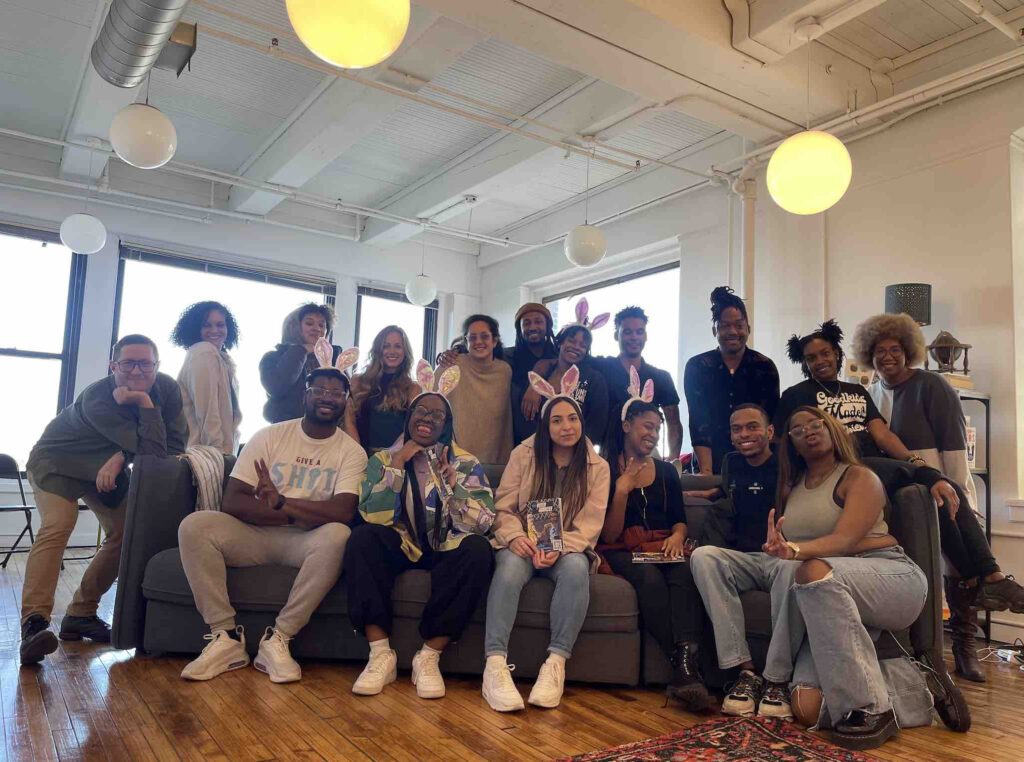
Unlock Civics
House Bill 39, Voting in Prison
Chicago Votes is working with the Unlock Civics Coalition to pass legislation to restore the right to vote to people serving time in prison. House Bill 39 (HB39), is under consideration for the Elections Omnibus bill in the Ethics and Elections Committee led by Chairman Maurice West. HB39 will be scheduled for a subject matter hearing before the session ends in May.
If you are interested in joining our weekly Unlock Civics Coalition calls on Tuesday from 4:15 to 5pm, email freddie@chicagovotes.com.
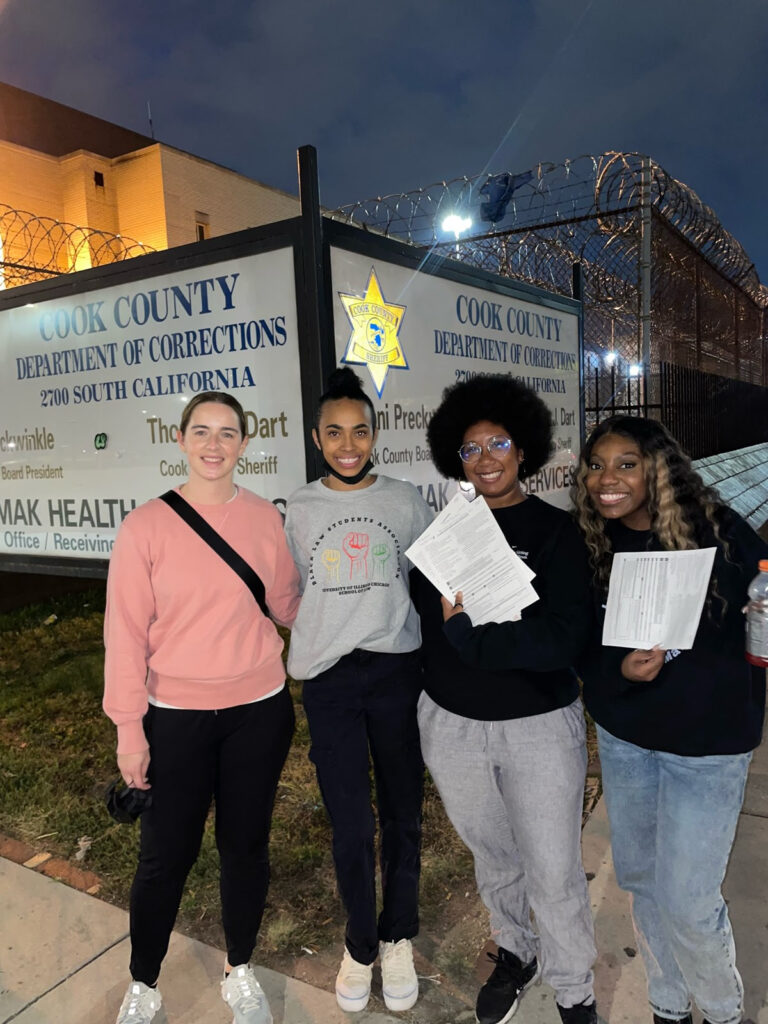
Cook County Jail Votes
Each month Chicago Votes goes inside Cook County Jail to register people detained in the jail to vote. The overwhelming majority of people detained in jails have the right to vote; that’s because they are awaiting trial. The next time we are registering voters inside the jail is May 14th from 4-7 pm. To attend, you must complete the CCJ Votes training and email ccjvotes@chicagovotes.com I’m in for Sunday, May 14th and I’ve attended the training.
New to the program? Attend a Cook County Jail Votes training. Cook County Jail Votes trainings occur virtually, on a monthly basis. Attending a training is REQUIRED in order to enter the jail.
Reimagining Democracy
Are you an Illinois educator? Sign up to introduce the Illinois legislative process to your students in an engaging, relevant, and influential way. The only way to learn the legislative process is to directly engage with it! Chicago Votes’ Legislative Tracking curriculum.
So, what does the legislative tracking curriculum entail?
- Learning how a bill moves through the House and Senate
- Selecting a bill to track and either support or oppose
- Creating a campaign plan for the bill
- Reaching out to lawmakers
The curriculum takes place now through the end of the legislative session, May 19th. Sign up to bring bill tracking into your classroom
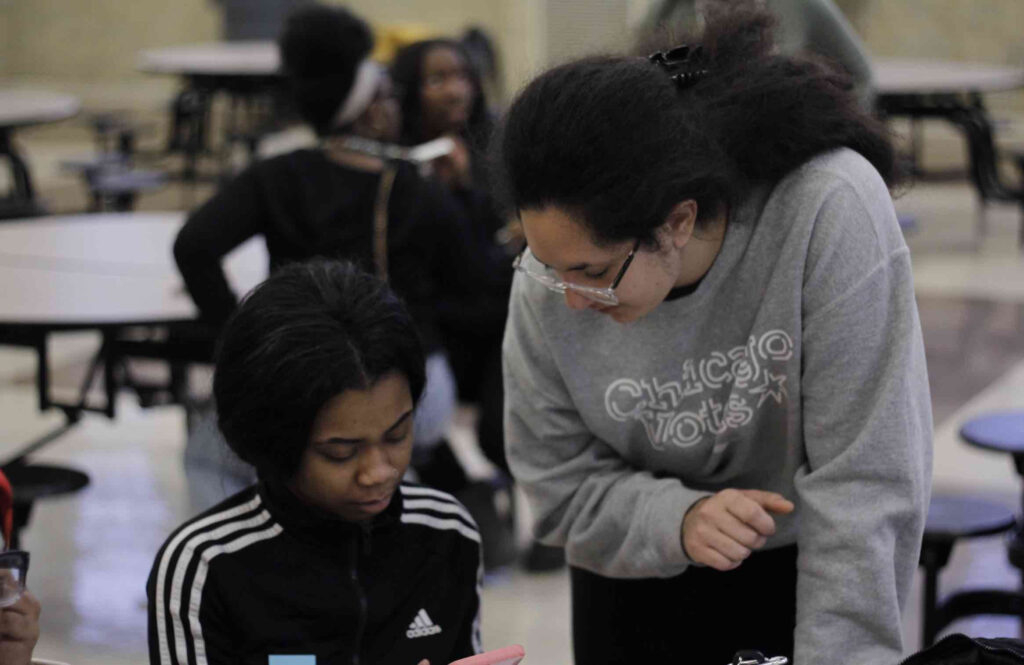
From passion project to full fledged curriculum, our legislative tracking activities in CPS bring students into the legislative process! Alex Boutros, community organizing manager, dreamt up the legislative tracking curriculum to demystify the legislative process and ensure young people have input in the policymaking process.
Give A Sh*t
Sh*t Talks
Thursday night Instagram Live Sh*t Talks are back! Beginning May 4th, each Thursday at 8pm, we’ll be on IG Live with community members, artists, electeds, and many more, discussing issues that are most pressing to young people in Chicago today.
If you would like to be featured or have a topic you would like to see discussed, feel free to fill out this form. We would love to connect and make it happen!
Catch up on previous episodes on Youtube or wherever you stream your podcasts!
Guaranteed Income and Its Possibilities in Chicago
Guaranteed income is the direct cash payment to community members below a certain income, with no strings attached. Guaranteed income redistributes wealth to people who need it most and who’ve historically been impacted by disinvestment and lack of opportunities. Hear from Rachel Pyon, Research coordinator and E.A.T (Equity and Transformation), and Deonte Baker, artist, and cash payment program participant, about guaranteed income in Chicago.
Police & Prison Abolition Pt. 1
In the wake of the murder of George Floyd by Minneapolis Police Officer Derek Chauvin, the movement for Black Lives re-ignited, gaining support and action globally. Defunding police departments and even abolishing the police entered mainstream conversation. As we pay homage to our ancestors and the work that came before us envisioning a new world, Damon Williams, Chima “Naira” Ikoro, and Jordan Esparza break down abolition, the history of police and prisons, and how we are that much closer to actually getting free.
Police & Prison Abolition Pt. 2
In the wake of the murder of George Floyd by Minneapolis Police Officer Derek Chauvin, the movement for Black Lives re-ignited, gaining support and action globally. Defunding police departments and even abolishing the police entered mainstream conversation. As we pay homage to our ancestors and the work that came before us envisioning a new world, Damon Williams, Chima “Naira” Ikoro, and Jordan Esparza break down abolition, the history of police and prisons, and how we are that much closer to actually getting free.
People Power & Electoralism
It’s no secret that politics as usual typically means young people aren’t included. The result is policies that fail young people and distrust between elected officials and young folks. Sit down with abolitionist organizers Jen Nava, Catlyn Savado, and Alderwoman Rosanna Rodriguez, as they chat about Chicago city politics, electoral organizing, and movement building. This episode is presented by Chicago Votes Give a Sh*t program in collaboration and produced by SoapBox Productions and Organizing.
On April 4, 2023, Chicagoans elected the next mayor–Brandon Johnson, endorsed by the Chicago Teacher’s Union.
We asked Brandon Johnson about the role of police in the city, protecting and empowering the transgender community, cannabis equity, and more.
Sh*t Talkin’ Central
Sh*t Talkin Central amplifies the voices of young bloggers who create online content from videos and trainings, to op-eds and blog posts, allowing us to view the world through their lens or pen. The goal is to create a culturally relevant and engaging space for civil discourse.
If you are a writer, poet, or storyteller of sorts, you could be paid $100 for your submissions. Go to bit.ly/pitchchicagovotes to submit your story/article/blog post for consideration to Sh*t Talkin’ Central. Selected writers will be paid $100.

Ideas for stories to pitch:
- The need for safe spaces for youth to congregate evenings/weekends
- A photo series of your neighborhood
- A interview with a local creative
- An interview with your alderperson
- A pitch to voters to stay involved in the summer’s city budget process
Volunteer Opportunities
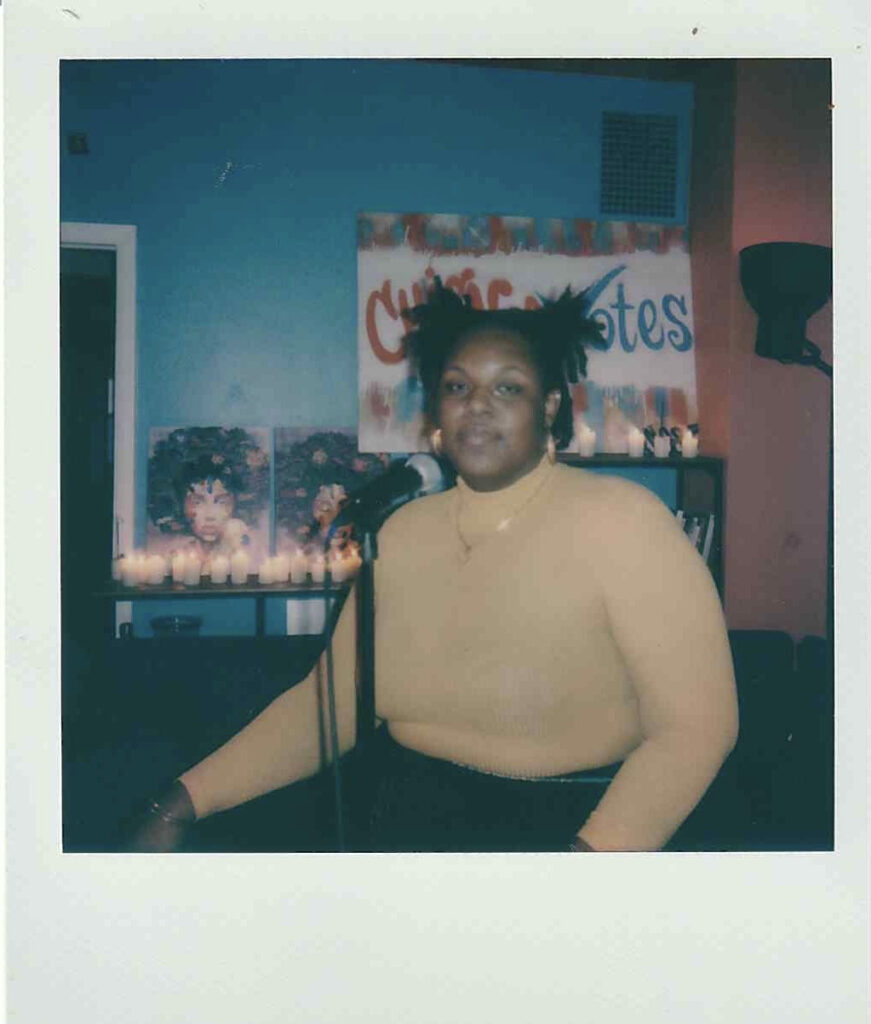
Give A Sh*t Creative Collective
Join our collective of young Chicago artists passionate about creating change in their communities. The Give A Sh*t (GAS) Creative Collective meets twice a month, in addition to various paid and volunteer opportunities.
Sign up for updates and ways to tune into the GAS Collective.
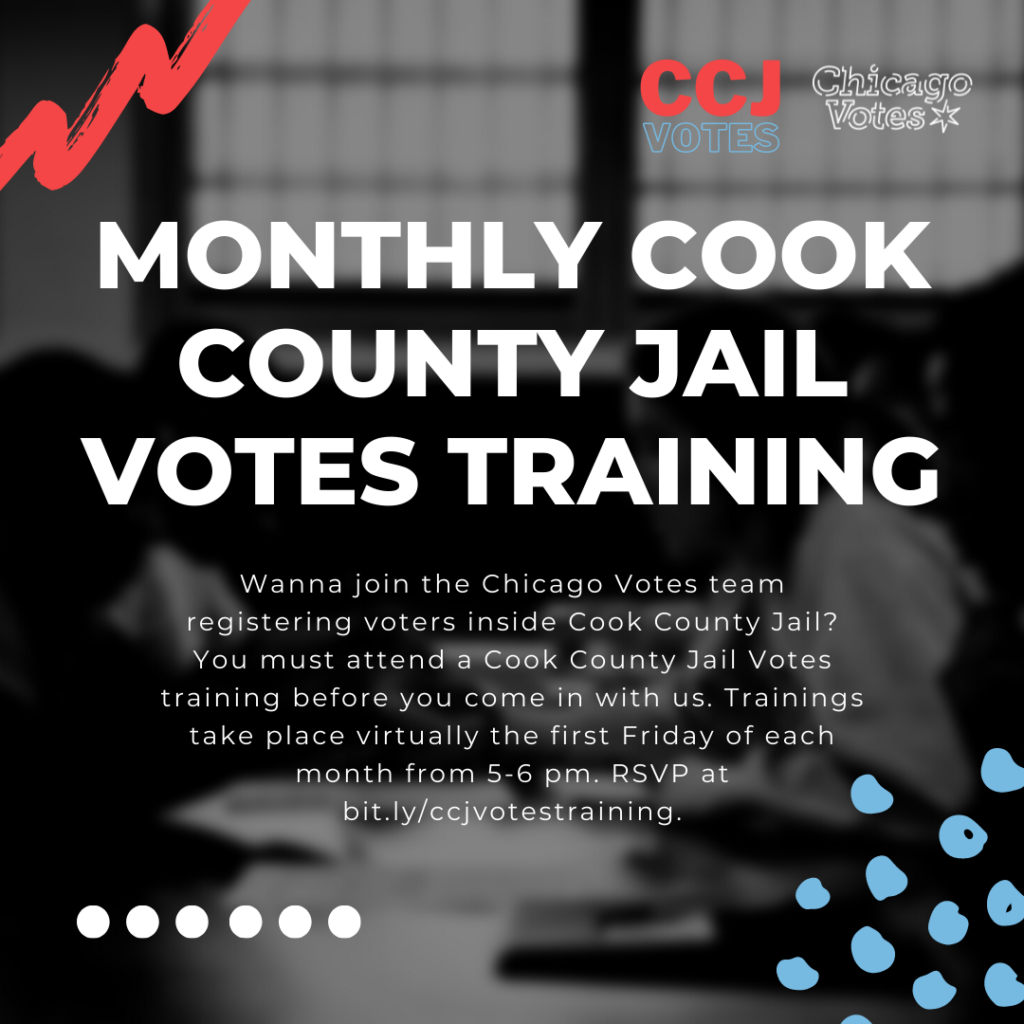
Cook County Jail Votes
New to the program? Attend a Cook County Jail Votes training. Cook County Jail Votes trainings occur virtually, on a monthly basis. Attending a training is REQUIRED in order to enter the jail.
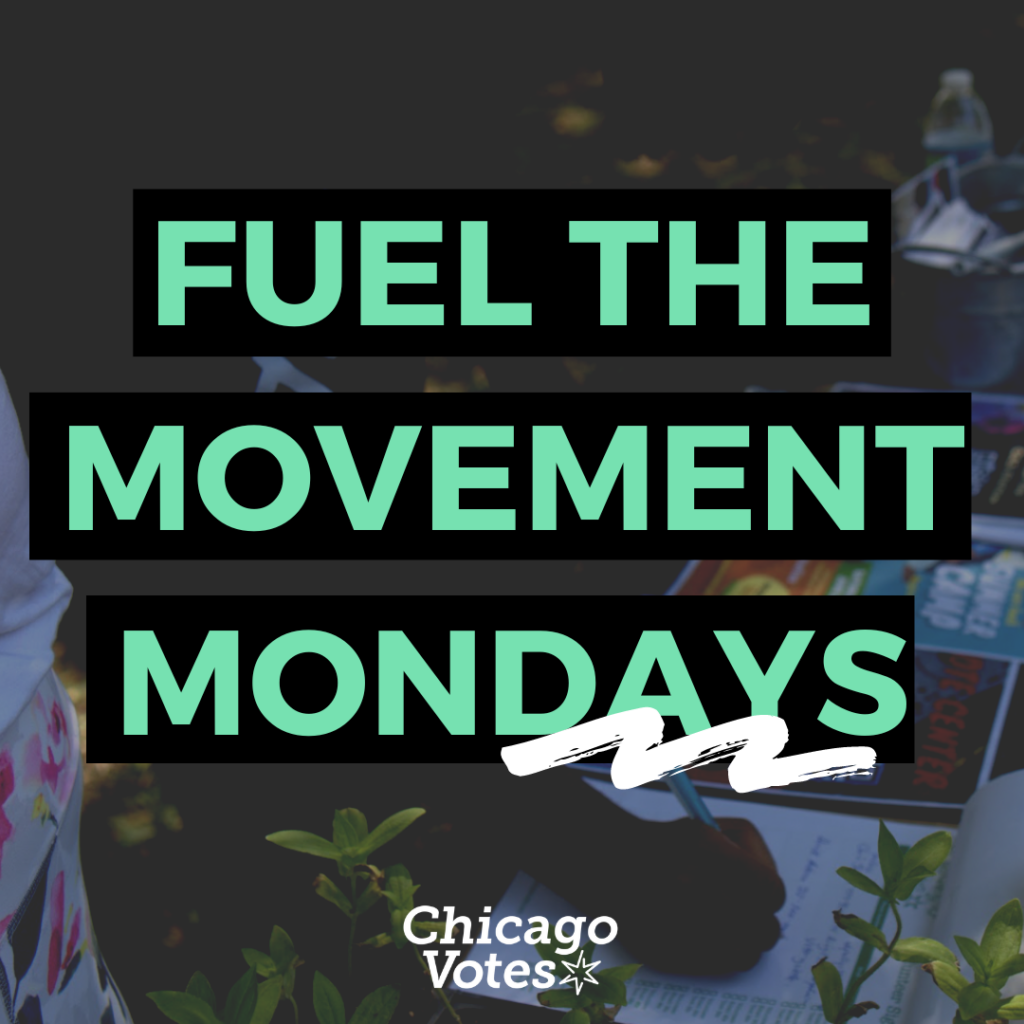
Fuel the Movement Mondays
The third Monday of every month from 6-8pm CT
We are a grassroots organization powered by grassroots money. Help us raise funds to keep organizing, paying young creatives, passing laws, and breaking down barriers to civic engagement.
